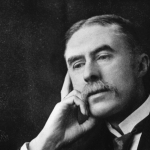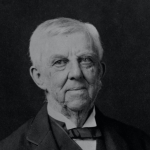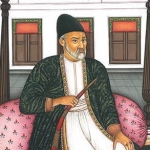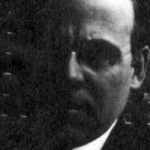The lad came to the door at night,
When lovers crown their vows,
And whistled soft and out of sight
In shadow of the boughs.
‘I shall not vex you with my face
Henceforth, my love, for aye;
So take me in your arms a space
Before the east is grey.
‘When I from hence away am past
I shall not find a bride,
And you shall be the first and last
I ever lay beside.’
She heard and went and knew not why;
Her heart to his she laid;
Light was the air beneath the sky
But dark under the shade.
‘Oh do you breathe, lad, that your breast
Seems not to rise and fall,
And here upon my bosom prest
There beats no heart at all?’
‘Oh loud, my girl, it once would knock,
You should have felt it then;
But since for you I stopped the clock
It never goes again.’
‘Oh lad, what is it, lad, that drips
Wet from your neck on mine?
What is it falling on my lips,
My lad, that tastes of brine?’
‘Oh like enough ’tis blood, my dear,
For when the knife has slit
The throat across from ear to ear
’Twill bleed because of it.’




















Comment form: